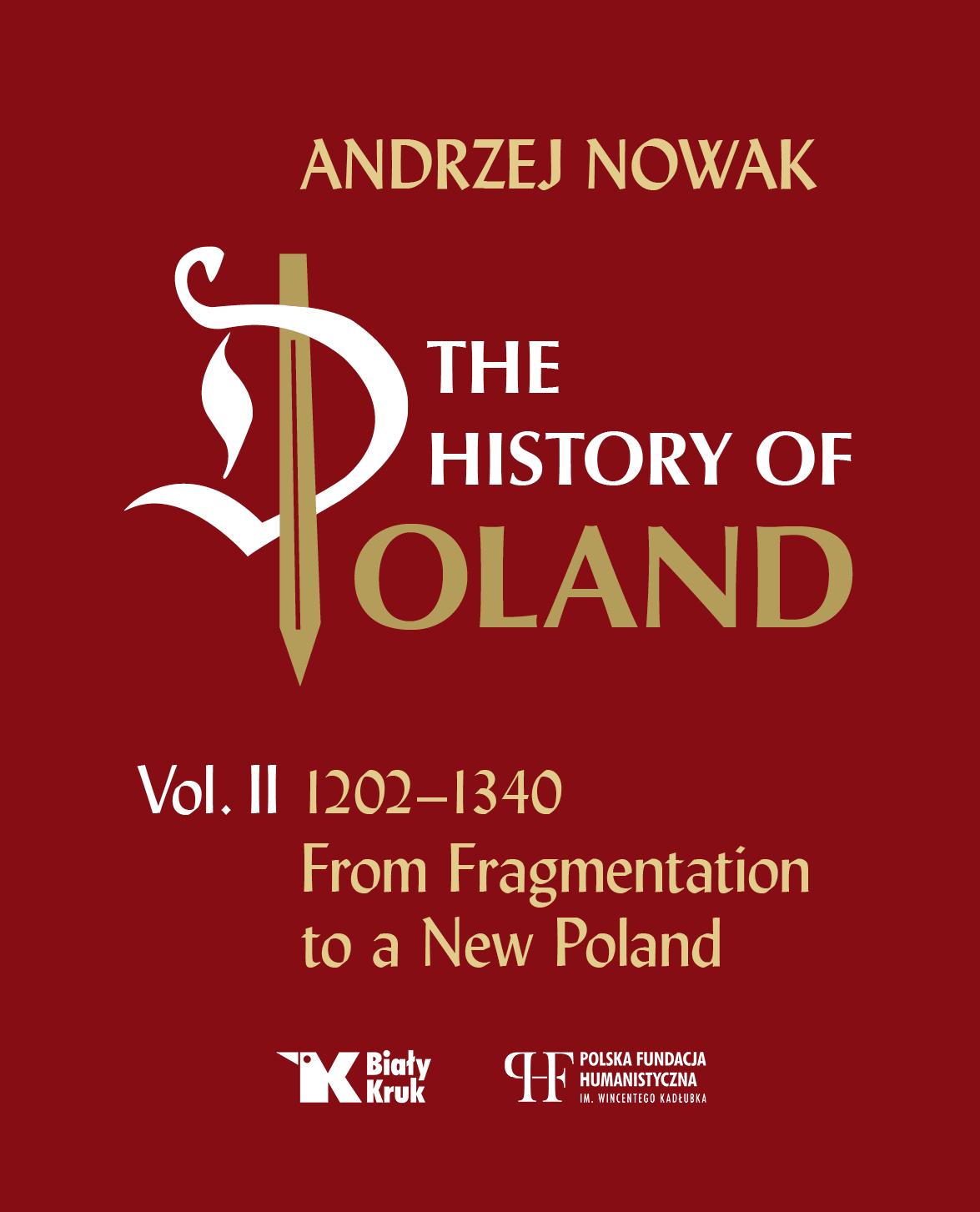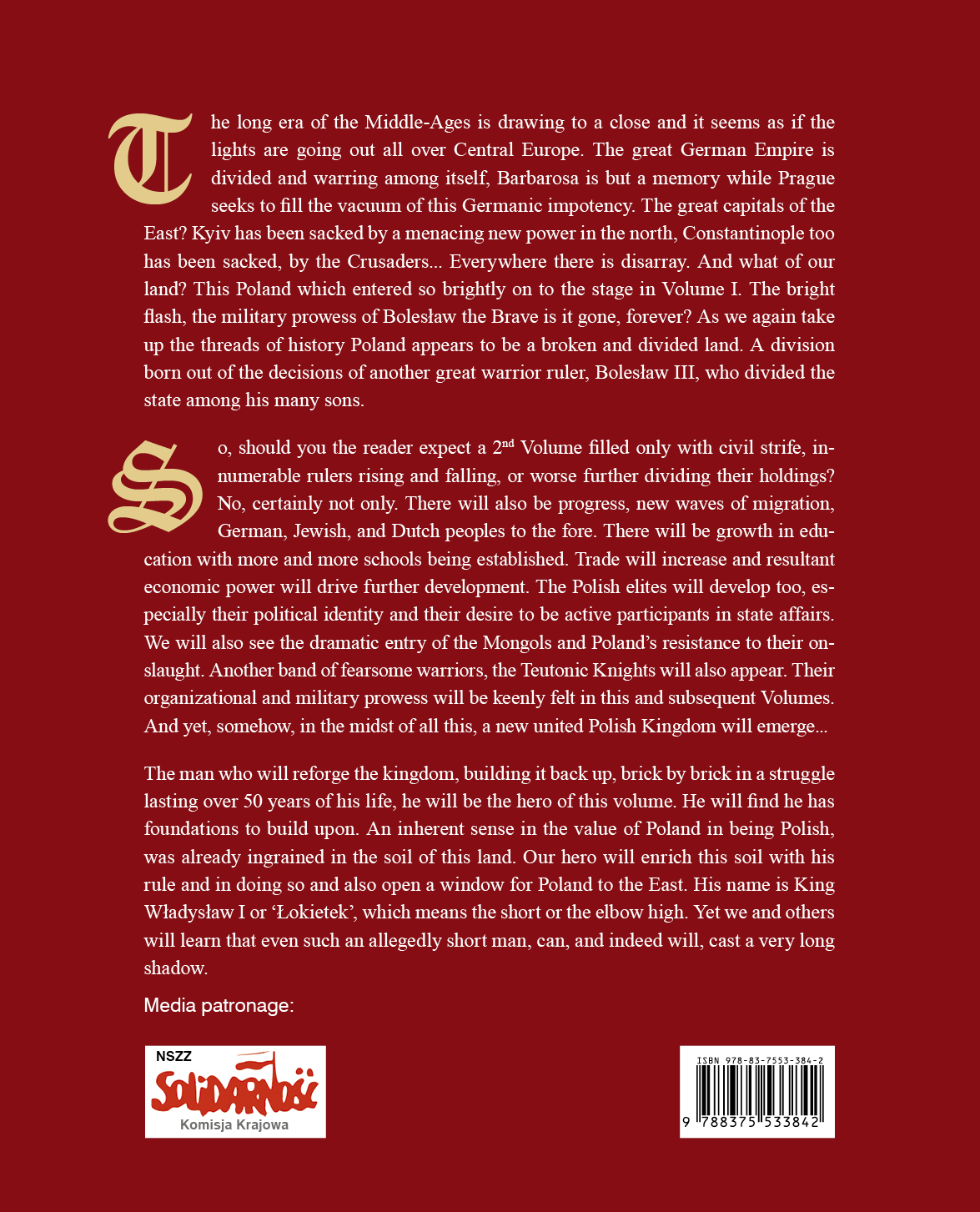The History of Poland - t. 2
The long era of the Middle-Ages is drawing to a close and it seems as if the lights are going out all over Central Europe. The great German Empire is divided and warring among itself, Barbarosa is but a memory while Prague seeks to fill the vacuum of this Germanic impotency. The great capitals of the East? Kyiv has been sacked by a menacing new power in the north, Constantinople too has been sacked, by the Crusaders... Everywhere there is disarray. And what of our land? This Poland which entered so brightly on to the stage in Volume I. The bright flash, the military prowess of Bolesław the Brave is it gone, forever? As we again take up the threads of history Poland appears to be a broken and divided land. A division born out of the decisions of another great warrior ruler, Bolesław III, who divided the state among his many sons.
So, should you the reader expect a 2nd Volume filled only with civil strife, innumerable rulers rising and falling, or worse further dividing their holdings? No, certainly not only. There will also be progress, new waves of migration, German, Jewish, and Dutch peoples to the fore. There will be growth in education with more and more schools being established. Trade will increase and resultant economic power will drive further development. The Polish elites will develop too, especially their political identity and their desire to be active participants in state affairs. We will also see the dramatic entry of the Mongols and Poland’s resistance to their onslaught. Another band of fearsome warriors, the Teutonic Knights will also appear. Their organizational and military prowess will be keenly felt in this and subsequent Volumes. And yet, somehow, in the midst of all this, a new united Polish Kingdom will emerge...
The man who will reforge the kingdom, building it back up, brick by brick in a struggle lasting over 50 years of his life, he will be the hero of this volume. He will find he has foundations to build upon. An inherent sense in the value of Poland in being Polish, was already ingrained in the soil of this land. Our hero will enrich this soil with his rule and in doing so and also open a window for Poland to the East. His name is King Władysław I or ‘Łokietek’, which means the short or the elbow high. Yet we and others will learn that even such an allegedly short man, can, and indeed will, cast a very long shadow.
400 pages, ISBN 978-83-7553-384-2

